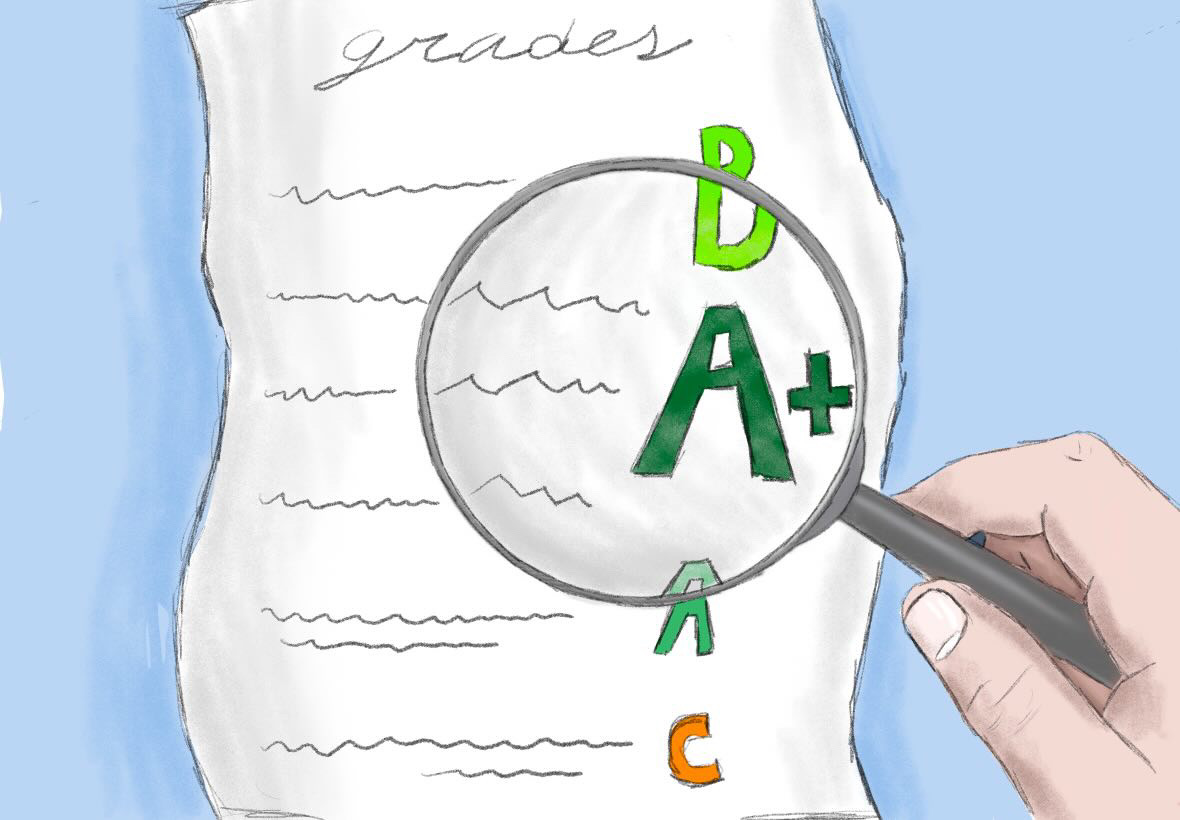
For many years, Townsend Harris High School assigned grades once per semester. In recent years, the school has opted for an “annualized” grading schedule where students receive one final grade at the end of the year. This year, the school has returned to the semester schedule, where students will receive one final grade per term, with each term counting as a separate course on transcripts. Now that students have received fall grades and are in the spring term, The Classic asked numerous members of the school community to reflect on and explain the change.
In an interview with The Classic, Principal Brian Condon said, “[The administration] decided that given the preference that people have for semester-based grading and the fact that annual-based grading didn’t give us the outcome we wanted, that going back to semester-based grading would be good.”
Mr. Condon said that one of the main shortcomings of the annualized grading system was its impact on students who failed courses. Each year, students receive two credits per subject area. With a semester system, they earn those credits at the end of each semester (one credit per term). With an annual system, students earn both credits at once in June. Mr. Condon said, “[If] you fail a course that’s annualized, you have to make up two credits in summer school …had it been semester-based, if they went to summer school it would have only been for one credit and generally the most credits that you can earn in summer school is three, unless you’re a senior. So if you fail two full year courses, you have to make up four credits.”
Assistant Principal of Pupil Personnel Services Jessica Graf said, “We want to give our students more opportunities to accumulate credit throughout the school year. We thought that it would give our students more opportunities to show their learning at a midyear point and end of year point.”
Freshman Manha Kibria said that the system was similar to the one she had in her middle school. She believes it is fair and better allows students to show an upward trend in their grades. “Colleges can see your past progression and you can better explain a bad grade, rather than one grade defining your performance [for the entirety of the year].”
Ms. Graf said, “I think [the new system] offers a chance to reset midyear and take stock of where you are.”
Others see the change as an incentive to better prepare themselves for assessments. “I think the semester change was helpful,” said sophomore Caroline Polec. “[Knowing that] our grades all reset to 100% encouraged me to study more and try harder for upcoming tests. I feel like the semester change will help me keep my grades high.”
“[The grading system] certainly is less stressful than last [year],” said sophomore Samiya Islam.
Mr. Condon also noted that a potential benefit of reverting back to the old system is that it may hold students accountable. “[The new system] incentivizes people to make up work or catch up sooner, instead of waiting until May to do so,” he said.
English teacher Anthony Balone said that he thinks this new grading system might prove to be beneficial compared to the previous one. With the annualized grading system, he said “students might care less about the assignments they do at the end of the year knowing that their grade is pretty much fixed because of all the assignments that happened before it.”
However, Mr. Condon did acknowledge some concerns associated with the semester model. “People learn at different paces,” he said. He said some students might show growth toward the end of the school year rather than in the first term, which might lead to a lower fall grade than the final grade they might have received otherwise.
Some students said they were concerned about the shorter time frame per semester to improve their grades, as there is less time to recover within each semester from low scores.
Junior Brandon Pinto said that “[he] feels more pressure knowing that grades reset at the end of the semester,” noting that it pushes him to try and “perfect” all of his assignments. The new pressure also ends up “mentally draining” him when he does not perform as well as he wanted on an exam.
Senior Susan Smolaga said that she is concerned about the shorter timeframe for seniors to get their grades up to where they want them to be by June due to second semester burn-out and senioritis. “Getting the grade back up before the end of the year with the new semester-based grading system will be much more difficult,” she said.
Junior Mariam Ahmed said, “[The shorter time frame] is definitely a concern, but I think that if you manage your time well and you’re dedicated, that this can actually be a positive instead of a negative.”





























